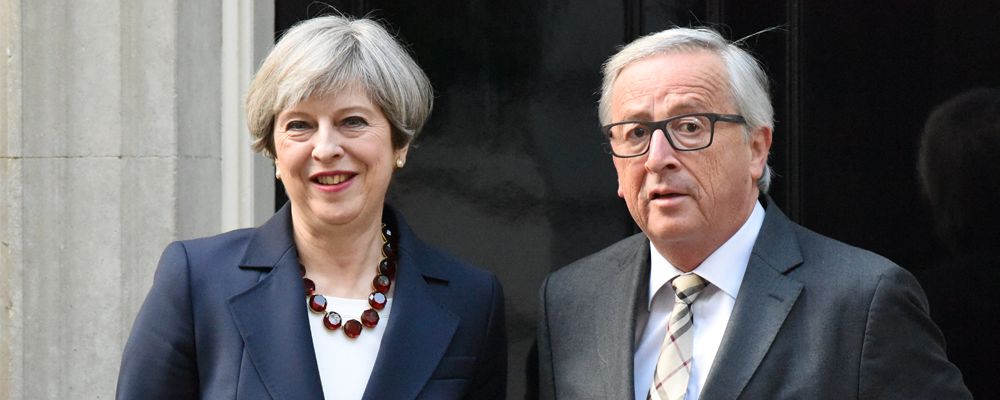The Game of Brexit
- Tuesday, June 20, 2017
 The logic behind Teresa Mays decision to call a snap General Election was understandable. She faced an extended period of difficult negotiations with the EU that would run into a General Election. The EU expected to deal with a UK government without a clear mandate for its Brexit strategy leaving it vulnerable on several fronts. Mrs May did not need this pressure and wanted to strengthen her hand. The outcome was very different to the one she wanted, one that resulted in a weaker position and a hung parliament.
The logic behind Teresa Mays decision to call a snap General Election was understandable. She faced an extended period of difficult negotiations with the EU that would run into a General Election. The EU expected to deal with a UK government without a clear mandate for its Brexit strategy leaving it vulnerable on several fronts. Mrs May did not need this pressure and wanted to strengthen her hand. The outcome was very different to the one she wanted, one that resulted in a weaker position and a hung parliament.
Teresa May believes that the June 2016 EU Referendum result was a strong indication that the country wants greater control over immigration into the UK and therefore end the free movement of people. It was clear from the manifesto that the government would seek a clean exit from the EU, one that leaves both the single market and the customs union and will seek to negotiate a bespoke EU exit agreement. The implications of a hung parliament are that the UK’s negotiation position may now need to be reassessed with a softer Brexit being sought.
EU officials want to start talking about a divorce settlement and not a trade agreement, while the UK wants to resolve both at the same time. Either way, we are unlikely to see any real progress until after the German Federal Election on the 24th September. At the October EU Heads of State meeting, Teresa May is likely to be presented with a large divorce bill.
The UK may need a clear Plan B if faced with protracted negotiations, a big bill and a stalemate. David Cameron did not have this option but Teresa May does. Even without a parliamentary majority she has to be prepared to leave and accept a ‘hard’ Brexit, one that falls back on the World Trade Organisation’s (WTO) tariff terms. This will be seen as failure for both sides not to secure a mutually beneficial UK Brexit deal. Some economists see this as a realistic and attractive outcome while critics suggest that such an outcome could cost the UK 2.5% of GDP when compared to full EU single market access.
Plan B may be temporary membership of the European Economic Area (EEA), sometimes called the Norwegian option. This option could offer some attraction as an ‘off the peg’ solution without some of the acrimony that is becoming evident in trying to negotiate a bespoke deal. Britain would then have time to move on to a preferred position.
Daniel Korski, Deputy Head of the Downing St Policy unit, has suggested that EU counterparts have agreed that it is in everyone’s interest to avoid a cliff edge in negotiations and that they accept the need for some form of temporary arrangement after the two year Article 50 period is over and before a new permanent UK-EU trade deal comes into effect. Therefore, it still remains reasonable to assume that the two sides will eventually work out a sensible deal.
Many informed observers are expecting the UK to eventually agree to a reasonably significant divorce bill paid over several years to help the EU with its funding gap after the loss of the UK contributions. In return we will secure attractive access to the single market, passporting rights for UK financial services and acceptable tariffs for key sectors such as agriculture and the auto industry. These outcomes will help preserve and grow the mutually beneficial £600bn annual cross channel trade between the EU and UK. Such an outcome will boost the UK and EU economy and likely raise the value of sterling.
Whatever the eventual outcome, there will be changes needed. The UK will have to re-adjust our economy. We will need to rely less on financial services, with banks and fund managers looking more to new global markets than European. Manufacturing exports will need to develop in the US and Asia. Our services industries and agriculture will have to rely less on cheap migrant labour and train local staff.

Chris Davies
Chartered Financial AdviserChris is a Chartered Independent Financial Adviser and leads the investment team.
About Estate Capital
Financial Services
Our Contacts
7 Uplands Crescent,
Swansea, South Wales,
SA2 0PA.
Tel: 01792 477763
